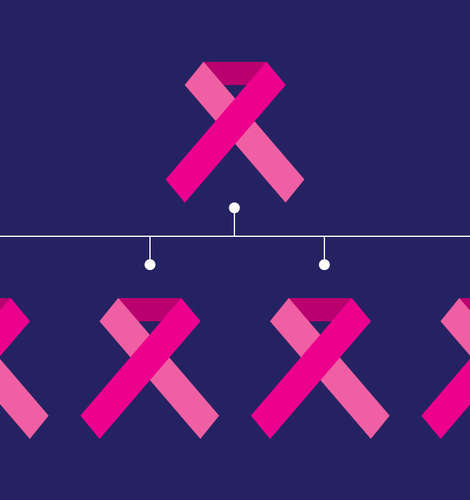After tumour pathology and outcomes were compared in young British breast cancer patients with and without family history of breast cancer, a study in the British Journal of Surgery concludes that there is no significant differences in cancer recurrence rates after treatment among women in the two groups.
The study
Researchers analyzed the Prospective Outcomes in Sporadic versus Hereditary breast cancer study (POSH), which included 2,850 patients under age 41, who were diagnosed and treated with invasive breast cancer in the UK. Patient personal characteristics, tumour characteristics, treatment, and family history of breast/ovarian cancer were recorded annually over 15 years.
Of these patients, 34.1% reported breast/ovarian cancer in at least one first- or second- degree relative, and 65.9% reported no family history.
Results
Patients with family history were more likely to have grade 3 tumours (63.3% versus 58.9%), and less likely to have human epidermal growth factor receptor 2-positive tumours (24.7% versus 28.8%).
Data show that after multivariable adjustment, the time to recurrence or death from breast cancer did not differ significantly between the two groups over a median follow-up period of 6 years.
Conclusion
Family history of breast or ovarian cancer is not a significant, independent contributor to cancer recurrence among young breast cancer patients after treatment, the study concludes.




